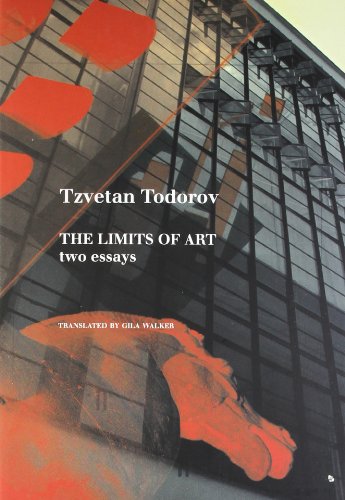

Most ebook files are in PDF format, so you can easily read them using various software such as Foxit Reader or directly on the Google Chrome browser.
Some ebook files are released by publishers in other formats such as .awz, .mobi, .epub, .fb2, etc. You may need to install specific software to read these formats on mobile/PC, such as Calibre.
Please read the tutorial at this link: https://ebookbell.com/faq
We offer FREE conversion to the popular formats you request; however, this may take some time. Therefore, right after payment, please email us, and we will try to provide the service as quickly as possible.
For some exceptional file formats or broken links (if any), please refrain from opening any disputes. Instead, email us first, and we will try to assist within a maximum of 6 hours.
EbookBell Team

4.7
66 reviewsTzvetan Todorov, one of Europe’s leading intellectuals, explores the complex relations between art, politics, and ethics in the essays that make up The Limits of Art. In one essay, “Artists and Dictators,” Todorov traces the intimate relationship between avant-garde art and radical politics in pre-revolutionary Russia, pre-fascist Italy, and pre-Nazi Germany. Todorov sets forth the radical idea that the project of totalitarian dictators and avant-garde artists actually “emerged from the same womb”: both artists and dictators set out to make it new—be it art or society.
Further troubling the role of art in the world at large, in “Art and Ethics” Todorov re-examines the age-old question of what can be expected from art and whether it should be emancipated from ethics. Must art be morally instructive, or should it be self-sufficient and concept-free? The answer is not an either/or to Todorov, who believes, like Baudelaire, that art has both cognitive and ethical aspects to it—even if it is presented as art for art’s sake.
Throughout the essays in The Limits of Art, Todorov insists on the essential need for artists to recognize, understand, and even love the world outside.
“Todorov harbors no illusions about the mix of good and bad that enters into the fabric of all that is human. . . . He speaks throughout in his own voice, with rare breadth of sympathy and with a fine eye for the complexities of human experience.”—New Republic
“Like the authors he focuses on, Todorov is tolerant, understanding and wise.”—Observer